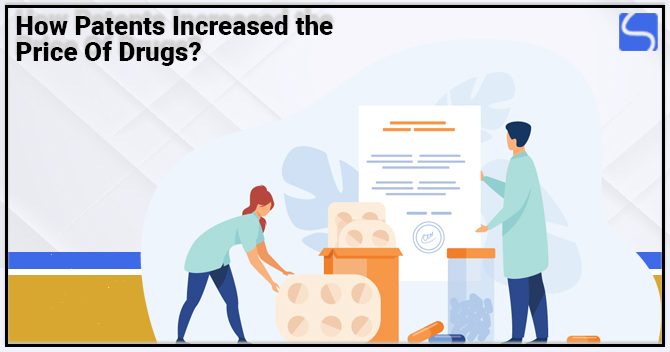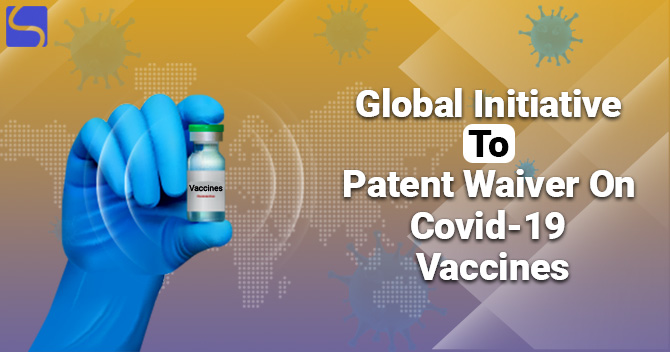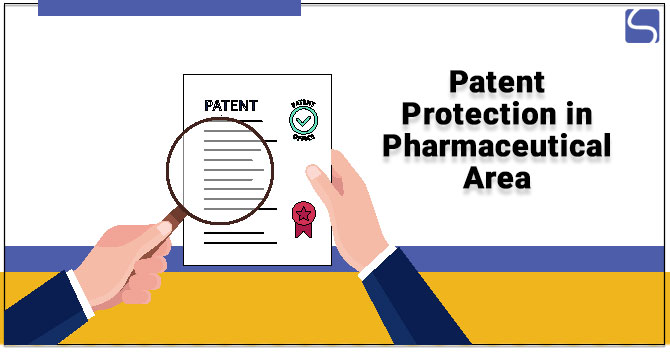How Patents Increased the Price Of Drugs?

Karan Singh | Updated: Apr 06, 2021 | Category: Patent
Innovation gives life to the whole industry of pharmaceutical because it’s mainly a knowledge-driven field. Without inventors go-getting for innovation, people would never have access to standard pharmaceutical drugs. But, these common drugs sell for a much lesser price, which is beneficial for the poor people, might not do a lot of good for huge companies. Moreover, the cost of innovation and research & development in the area of pharmaceutical industries is huge and quite random. Patents help huge pharmaceutical companies legally safeguard their Intellectual Property Right (IPR).
Separate drug companies Patent have numerous features of drugs that don’t need a lot of innovations. These efforts hide their competition from creating universal drugs, which makes things challenging for general people. Hence, people need to strike an elusive balance between patenting to make more money and patenting for safety. In this blog, we discuss how Patents increased the price of drugs.
Table of Contents
How Patent Play a Significant Role in the Price of Drugs?
The price of drugs is at the front of discussion among patients, prescribers, pharmaceuticals[1], policymakers, advocacy groups, etc. There is one important factor – in driving the price of drugs is the availability of competing products. Certain competing products, such as biosimilar version or original versions of the approved drugs, are not immediately available as an outcome of the market individualities granted to the innovator company by the Government in the form of special marketing rights or Patent rights. The reasoning for granting such market snootiness is to incentivize innovation and advancement of better, new and safer recommendation drugs.
Discussing the Policy of Drug
Rising concerns that people are not getting true access to drugs and that the health-related industry is not economically accessible are developing. All around the globe, medicines are getting costlier, which makes things very hard for middle-class people. The healthcare system in India took up 1% of its GDP, up until a few years ago, where the globe’s average was 6%. Hence, it is clear that we need to advance a better understanding of what policies affect the price of drugs so that we may regulate them and prevent inflation.
In innovative sectors, Patents are very useful, as they give companies incentives to invest in research and development. But, the reports tell that only 5% of the drugs manufactured in India are protected by Patent. For example, India has over 30 lakhs of people who have cancer. But, in the previous few years, only seven new drugs for cancer come out into the market, whereas around the globe, there have been over 50 new therapies. Researches done by MIT show that out of 184 drugs permitted by the FDA to be sold in India, over 50% faced delays due to marketing approval. Sometimes, such delays lasted up to 5 years, meaning that they found their way into India much later.
Manufacturers of Generic Drug
Once the marketing approval received, these new drugs will be manufactured and sell as many generic drugs by Indian manufacturers within one year. Studies tell that this represents how much people have lost trust in the Patent scheme. If these researches are truly correct, then it spells bad news for both patients and pharmaceutical companies. The World Health Organization (WHO) has lately announced that the world would quickly run short of antibiotics due to the growth of drug-resistant infections. They have faith that the speed of evolution of such drug-resistant microbes would be faster than the speed of making new drugs. Most of the huge drug manufacturer companies in the world are closing down their antibiotic research, opting to concentrate on drugs for diseases. This occurs because particular drugs are more profitable than essential medication such as antivirals and antibiotics.
How do the Price of Drugs Increase?
As per the researches done by the WHO (World Health Organization), over 50% of the final market price of drugs is due to factors external to its process of manufacturing. Most of the regulation techniques for the price of drugs are useless as their mechanisms are not associated with the factors that result in the price rise. Moreover, poor execution of these methods due to inadequacy and a negligent attitude form the government outcomes in further surges. The strategy of China to counter the surge in the price of drugs that have Patent Registration is an interesting one that earns mention here. Recently, China cut patented medicines costs by 70% when it comes under the government insurance regime. But, they did so without interfering with the process of Patent Registration. Hence, this aided make the drugs inexpensive to patients while also ensuring a reliable revenue stream for the pharmaceutical companies.
Are the price of drugs or medicines are expensive in India?
Bloomberg Research shows that the price of drugs per monthly unit in India for diseases like hepatitis, diabetes, and asthma were 2%, 4%, and 3%, respectively, when relating to the US prices. Hence, people in India pay very less for their drugs as compared to the US, Brazil, and China. But, inexpensive drugs come at the cost of time. As these drugs take a longer time to be available in the Indian market. The extreme delay in obtainability and feeble incentives for innovation amongst Indian pharmaceuticals is a problem that we need to look at. To raise the pharma industry even further, the Government must build an ecosystem that encourages and promoted medical innovation.
How to Resolve the Problem of Rising Drug Prices?
- Remove bad Patents efficiently to make sure that only innovation is encouraged and not greed;
- Bring an improved structure to the governing body to ensure that the examiners of Patent don’t get overloaded;
- Remove inacceptable Patents to finish the control and permit free-market competition;
- Make sure that Patents don’t create problems for biosimilar competition after their expiry.
Conclusion
The basis of the Patent system should be to strike a balance between the public’s interest and pharmaceutical industries that encourage innovation. Extending Patent protection by covering off rights to treatment ways, active use of ingredient and drug molecules limit people’s access to drugs at more reasonable prices.
The Patent gets expired due to other minor Patents that cover every feature of the medicine. But the expiration of a Patent License doesn’t always ensure lesser prices. It’s because generic firms abstain from entering huge numbers or very rapidly so that they can get higher profits. Therefore, it’s clear that the high price of drugs is not entirely due to the Indian Patent System. But instead, due to the mixture of aspects which we fight to improve drug affordability and availability.
Read our article:What are the Types of Intellectual Property Rights?














